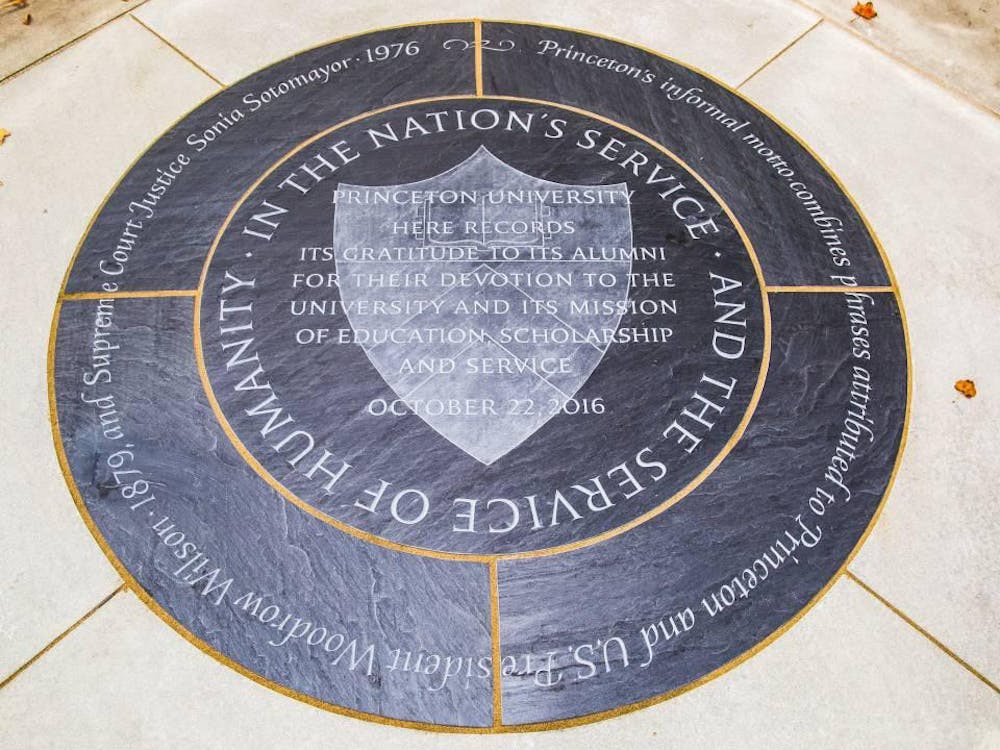The pluralist tradition has long been an important part of American history. Leaders have used the pluralist approach to resolve conflicts both at home and abroad, choosing to act as mediators between different groups. Rather than imposing solutions, these leaders allowed the stakeholders to mutually decide on their own answers to issues. In this way, the pluralist approach is an effective, long-term and fair way to address issues. Successes include Franklin Roosevelt’s mediation between workers and employers to end labor unrest in the 1930s and Senator George Mitchell’s role in negotiating peace in Northern Ireland in the late ’90s.
Both Tigers for Israel president Sam Major’16and the directors of the Center for Jewish Life have argued in op-eds this year for fostering dialogue between pro-Palestinian and pro-Israel advocates. In principle, this position reflects an admirable commitment to the tenets of pluralism. However, in reality, the “pro-solution” defended by Major and the CJL directors fails to promote a truly pluralistic answer to the Israeli-Palestinian controversy by continuing the anti-pluralistic status quo. In response to this issue, activism on the part of consumers, students, academics and institutions is necessary to achieve a pluralistic framework for negotiations between Israel and Palestine.
Currently, the United States as a whole is far from a neutral mediator between the two sides. Instead, it is a strong advocate for Israel, providing consistent diplomatic support as well as massive military aid in the amount of approximately$3.1 billion per year since 2012 (nearly as much in one year as the $4.2 billion that the United States has provided to Palestinian organizations cumulatively since 1994). The Israeli-Palestinian conflict is obviously complex and requires a complex response from the United States. I fully realize, especially having grown up culturally Jewish, the sensitivity toward actions that may be considered harmful to Israel's welfare. Some degree of American aid to Israel is surely necessary to ensure security and emphasize the legitimacy of the state of Israel.
The state of affairs, however, calls for a meaningful change to the status quo. Today, 1.8 million Palestinians in Gaza are confined under an act of war under international law to whatthe Princeton Committee on Palestineexplains is essentially a massive open-air prison. The United Nations, working on the ground and supervising human rights groups in Gaza, estimated in August that 1,462 of the 2,104 Palestinians killed this summer (69 percent)were civilians, including 495 children and 253 women. In the West Bank, Palestinians are denied freedom of movement and face a fundamentally unfair and arbitrary justice system.
Grassroots activism, like the movement to boycott, divest and impose sanctions, is necessary to counterbalance the massive, guaranteed U.S. aid to the Israeli government and the continuing profits of companies benefiting from violations of international law and violations of Palestinians' human rights. I support specifically the calls to boycott and/or divest from those companies and academic institutions (not individuals, as Tehila Wenger inaccurately asserts in “Is Professor Weiss suppressing Israeli academia?”) that profit from the illegal occupation of the West Bank and the siege on Gaza.
Most importantly, I want to emphasize that the kind of activism espoused by the BDS movement is necessary to create a pluralist framework for negotiations. As students, faculty, alumni, trustees, etc., we are not asserting a pluralist position by refraining from activism and sticking to moderating discussions. Until we take action to hold companies and institutions responsible in some way for taking advantage of violations of international law, we can only give the Palestinian perspective a symbolic seat at the table. The pro-Israeli occupation perspective continues to hold all the political and economic leverage. This situation does not allow any form of meaningful pluralism.
I am aware that the directors of the CJL, an invaluable campus resource for Jews of all different backgrounds, are simply following the guidelines of Hillel International. Hillel considers any meaningful change to the status quo in U.S.-Israeli relations as “harmful” to to the state of Israel, a guideline that is intentionally vague. However, the recent faculty petition to divest specifically from “all companies that contribute to or profit from the Israeli occupation of the West Bank,” similar to the petition signed by Professor Weiss to boycott Israeli academic institutions, is an effort to reach productive, pluralistic discourse.
Like the students who wrote an open letter to the CJL community and Hillel International, I find some statements made by the CJL directors troubling, such as the implication in a letter to students that the recent faculty petition supporting divestment creates an unsafe environment for Jewish students. As the writers of the open letter explain, many Jewish students are, on the contrary, afraid to voice support for divestment because they fear repercussions from the CJL community. The decision by some at the CJL to promote Hillel’s red lines in this way shuts out meaningful campus dialogue and excludes productive activist perspectives.
No less important than leaders like Roosevelt and Mitchell are the grassroots activists who struggled to alter the status quo and create a truly pluralistic framework for conflict resolution—from the leaders of the bus boycott in Alabama that forced companies and officials to reconsider segregation to those who worked to spur divestment from the apartheid regime of South Africa to labor leaders whose strikes led to fair pay and reasonable hours.
By embracing activism and promoting truly pluralistic discourse, we have the opportunity today to lead the way to a resolution decided upon by both the Israeli and Palestinian people.
Max Grear is a freshman from Wakefield, R.I. He can be reached at mgrear@princeton.edu.






